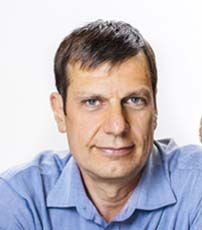How recent is the phenomenon of global change?
It’s hard to comprehend large-scale change over time, says Berkeley’s Charles Marshall. He should know. He’s a paleontologist. He studies the long history of life on Earth. It’s hard to comprehend, he says, because our senses aren’t adapted to recognizing change on a global scale, and because major change can take a lifetime or longer. Our own upbringing also gets in the way. We grow up best with stable support, and so we aren’t well suited to dealing with instability. At the same time, we’re so adaptable that we get used to change if it’s slow. The rapid increase in greenhouse gas emission, soaring population growth, and resource extraction have largely occurred within his lifetime, he says. Today, of course, human-driven change is undeniable, global and threatening. But at Berkeley, a rich community of scholars, postdocs, and students, in strong partnership with private industry, government agencies and NGOs, is working to make a difference in our future – in our climate, environment, biodiversity and energy use. We face change head-on. This is where hope lives.
 Charles Marshall
Charles Marshall
Charles is a paleobiologist interested in how paleontology can inform our understanding of the history of life, and the processes that have shaped it. His research takes advantage of data from the fossil record, molecular phylogenies, genomics, developmental biology, computer simulation, and functional studies. Read more.
